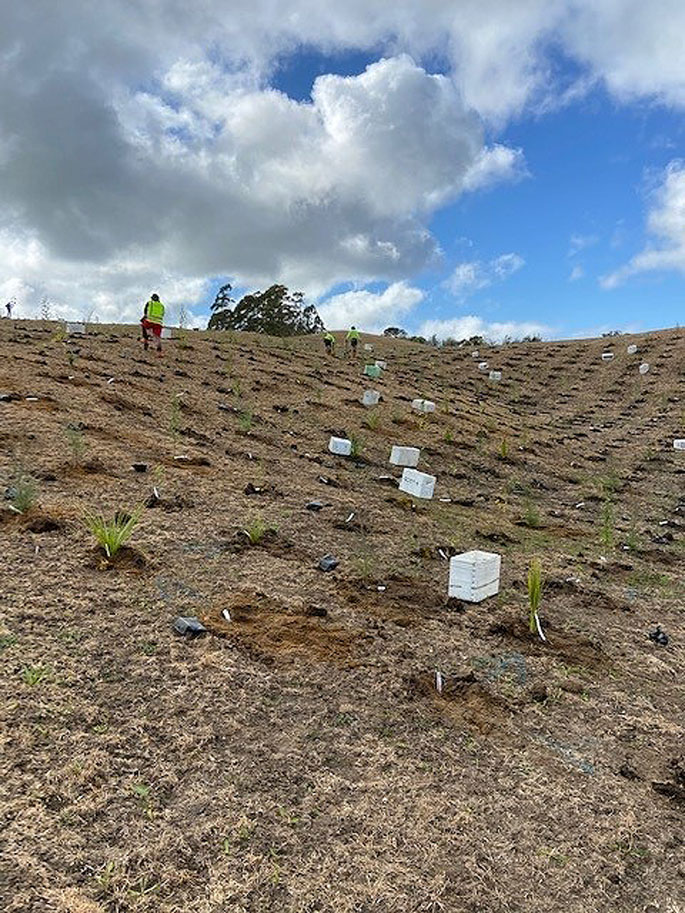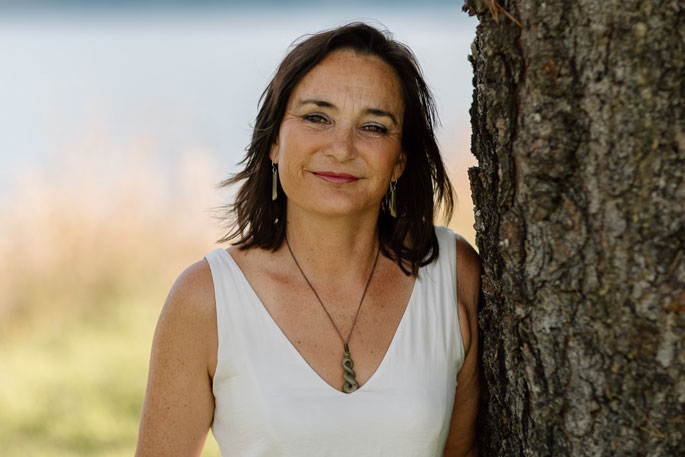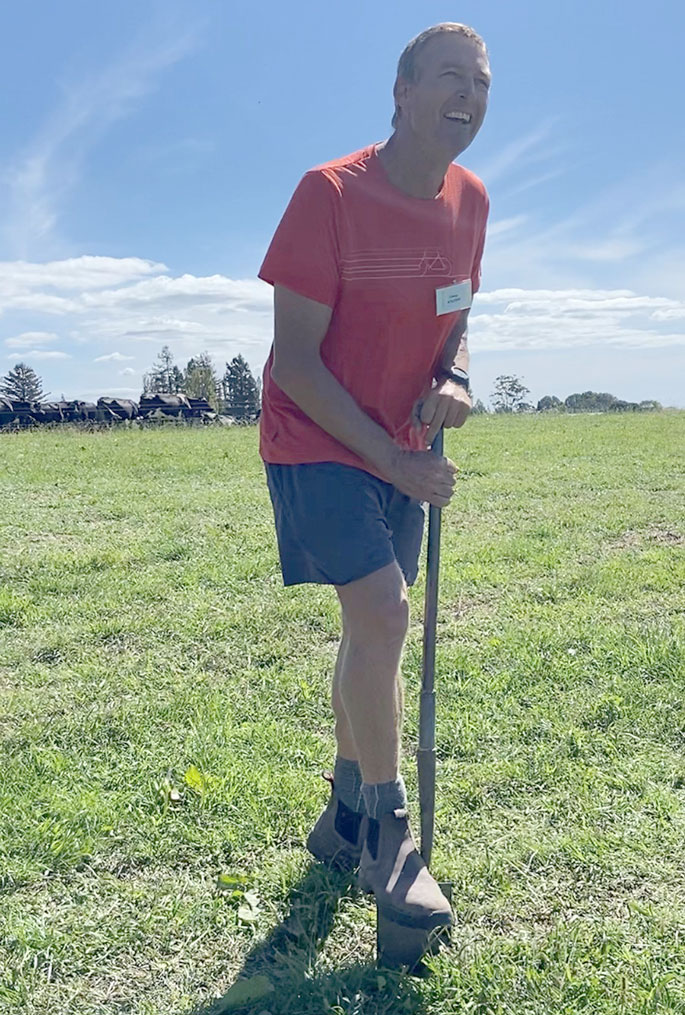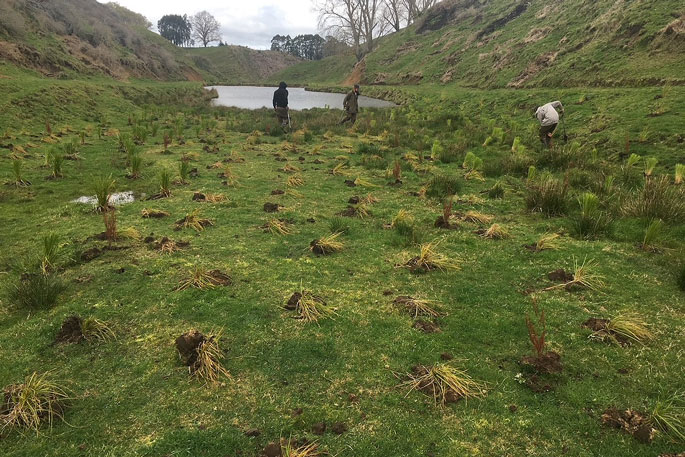A $1.45 million Jobs for Nature project in the Bay of Plenty is seeing dozens of farmers substantially reduce nutrients going into one of New Zealand's most polluted estuaries, providing inspiration for ongoing change.
The Lighthouse Farm project, funded by Ministry for Primary Industries and led by community restoration group Wai Kōkopu, began in February 2021.
It has since supported more than 40 farmers and orchardists surrounding the Waihi Estuary to better understand their landscapes, emissions and contaminant losses to improve their business operations and environmental outcomes.
Waihi Estuary was once a main food bowl for the Bay of Plenty but shellfish gathering became unsafe because of high levels of nitrogen, phosphorus and E. coli.
The estuary's entire ecosystem has been compromised and many native plants, fish and birdlife struggle to survive.
But thanks to leadership provided by Wai Kōkopu, 210 hectares of marginal erosion-prone land has now been retired from grazing and replanted in native and exotic trees.
This will sequester over 28,800 tonnes of carbon by 2038 while also protecting water quality, reducing sediment loss and flood risk, and restoring diversity to the area.
 New native plantings.
New native plantings.
'Overall, the scale of reductions of contaminants are significant in the Waihi Estuary,” confirms Wai Kōkopu project manager Dr Alison Dewes.
'Planting marginal grazing land with trees in this area will significantly reduce annual contamination loads of phosphorous (~1.6 tonnes) and nitrogen (~10 tonnes) in local waterways which then flow into the estuary itself.”
Alison says she's most proud of the farm systems changes that have occurred in a very short space of time, providing inspiration and motivation for other farmers to follow suit.
'The project has involved working closely with 15 ‘Lighthouse Farmers' using farm systems analysis, on-farm field days and expert advice to help farmers transition to systems with a lower environmental footprint. This transition was aided by the creation of a pan-sector digital farm plan which aims to support farmers to be fit for the future,” she explains.
 Alison Dewes.
Alison Dewes.
Now that the Jobs for Nature funding has concluded, local farmers have been sharing their stories of success.
James and Donna Wilkins have retired the lowest, wettest areas of their 80 hectare farm on Maniatutu Road, Pongakawa.
'Our forebears drained the swamps and now we are recreating them,” James quips.
'We have always been advocates of looking after our waterways and had already started planting our three streams that run through the farm. The Wai Kōkopu project has certainly focused our intentions. Sharing ideas with a group of like-minded people and experts in the field has helped with the focus.”
The couple have now changed the timing of fertiliser applications and have reduced the amount of nitrogen being applied to their dairy and kiwifruit operations.
They're also upgrading their infrastructure to capture runoff and protect pastures during rainfall events.
 James Wilkins.
James Wilkins.
'Our dairy platform is small, but we are always looking at ways to improve how we farm.”
Hamish and Lyn Henderson are currently working with Wai Kōkopu to consider tree planting options for their low-lying challenging land in Pongakawa which is 'marginal at best” for grazing. While he's 'nowhere near a greenie”,
Hamish says learning about the damage nitrate leaching can do has been enormously eye-opening and says Wai Kōkopu 'has provided the information and incentives to take the need for change seriously”.
.jpg) Hamish Henderson, third from left.
Hamish Henderson, third from left.
The Waihi Estuary catchment spans 34,000 hectares and runs from the mountains near Lake Rotoiti and Rotoehu to the coastal estuary at Pukehina. Wai Kōkopu is a community-led programme which aims to replenish and revitalise the ecological health of the area.
Wai Kōkopu will receive financial support from BayTrust and TECT for another 12 months to continue working with landowners to reduce nutrient and sediment loads, as well as fish passage remediation, water quality monitoring, weed and pest management, climate change resilience, and supporting nature-based education.
'This project has had a short run time to date, and long-term change takes time,” Alison says. 'So Wai Kōkopu hopes to raise more funding to keep the momentum up beyond 2024.
'The Government recently released details of the rollout for freshwater farm plans, with the system taking effect in Waikato and Southland from August 1, 2023. Our farm team will be paying a fair bit of attention to what this means moving forward. Leading farmers that are already on the journey of change appear to be recognised in this process, so that's another big win for everyone involved in the work we have accomplished so far.”



0 comments
Leave a Comment
You must be logged in to make a comment.